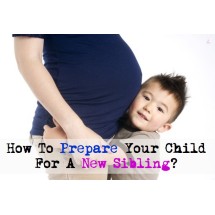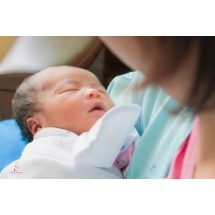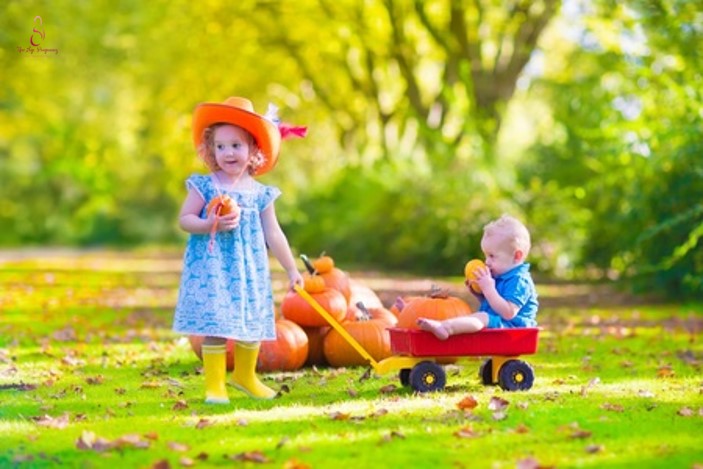
After having your very first child, many parents are hoping to have a second one to complete the family. But.. Is there an ideal age gap between your first and second child?
While the answer is unique for each family, there are general advantages and disadvantages for a shorter versus a longer age gap. Let’s explore some of these pros and cons.
Age Gap of One Year
An age gap of one year would mean that the second baby is conceived within six months from the first pregnancy. Studies have shown that there will be a higher risk of premature birth and low birth weight in such instances. Moreover, the mother’s body will not have time to replenish the nutrients lost in the first pregnancy, thus affecting the health of both mother and baby. There are also higher risks of iron deficiency, anaemia and preeclampsia for the second pregnancy. While a shorter age gap may be attractive to couples who want to get the ‘intense baby care’ parenting years over and done with, it is typically not recommended considering health reasons.
* * * * *
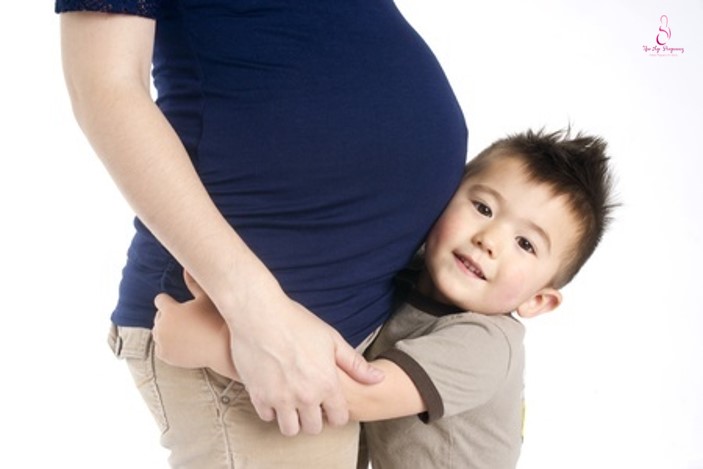 Age Gap of Two to Four Years
Age Gap of Two to Four Years
A common choice of age gap is two to four years. Within the two to four year age gaps, there are also differences especially when the second child is born when the first child is undergoing the ‘terrible two’ year. Parenting experts suggest that an age gap of three years will experience less sibling rivalry and behavioral issues. However, there are some general pros and cons associated with this age gap:
- Pro #1 Recovery of mother’s body
The mother’s body has time to recover and replenish nutrients such as calcium and iron but remain adaptive towards the next pregnancy and delivery. For instance, the increased blood flow to the uterus from the first pregnancy will benefit the second pregnancy (limited to a two years’ window).
- Pro #2 Health of the next baby
There is a lower likelihood of premature birth and low birth weight for the second baby when the age gap is at least two years.
- Pro #3 Easier childcare
The first child will be more independent and able to explore and engage in activities on his own. Some young children will even exhibit higher independence given the new status as the elder sibling, such as increased self-reliance during feeding, potty use and dressing. It is also easier to plan holidays and family outings when the age gap is closer.
- Pro #4 Confidence in baby care
With the relatively shorter age gap, it is more likely that parents will remain confident in caring for a newborn. Moreover, help from grandparents are more likely if the grandparents are not as advanced in years.
- Con #1 Less time with the first baby
The sooner the second baby arrives, the less time parents will have with the first baby. If there is no help taking care of the second baby, parents may find themselves having to take care of the newborn and have less time with the first child. There may be ‘missed’ or ‘rushed’ baby moments where the parents are too tired or tied up to enjoy spending time and celebrating the first baby’s milestones.
- Con #2 Difficulty with “heavy duty” baby care
The first child may still require to be carried in certain instances, and being pregnant with a second child will make it challenging and taxing on the back. Depending on the second pregnancy, a mother experiencing morning sickness, backache or health conditions may find it difficult to take care of the first child.
- Con #3 Sibling rivalry/ Separation Anxiety
Toddlers who are discovering their sense of self are more likely to have sibling rivalry as they exert their rights, including the right to have the parents to themselves. There may also be separation anxiety for the first child as the parents need to care of the newborn (hospital stay, frequent trips to the pediatrician in the baby’s first year). Behavioral issues for the first child are most common when the age gap is about two years.
- Con #4 Higher expenses and longer leave from work
Although the expenses may be slightly lower given that more items can be shared, significant expenses relating to preschool, diapers and milk supplement will be closer together as opposed to a longer age gap. Parents have to budget for expenses for both young children to be incurred at the same time. Related to this, mothers who have to take four months’ maternity leave in less than two years apart may be viewed negatively at the work place.
* * * * *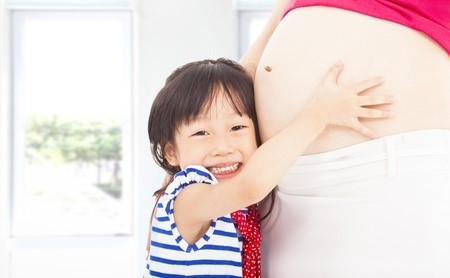
Age Gap of over Four Years
A less popular choice of age gap is four years and above. While there are advantages associated with more attention for each child, parents may feel like they have to ‘start over’ when their second child arrives. Some general pros and cons associated with a longer age gap are:
- Pro #1 More time with the first child
A longer age gap means that parents really have one-on-one time with the first child, not missing moments in the infant and preschool years. More importantly, both parents can be present for the first child instead of one parent having to miss spending time to take care of the second baby.
- Pro #2 Staggered expenses and career
With a bigger spacing between two children, the relatively higher expenses incurred during infant and preschool years can be staggered. At the same time, the mother can return to work and continue with her career progress before having the second child.
- Pro #3 Less sibling rivalry
More time having been devoted to the first child reduces the likelihood of sibling rivalry from fighting for your attention or from insecurity. The older child is much more likely to have his own interests as well and may even be able to take on some simple baby care responsibilities.
- Pro #4 Longer time with children
Having the second child when the parents are older means that the overall time spent with your children (one or two) will be longer. For those afraid of being alone when your children leave home, having a younger child means that you delay the ‘empty nest’.
- Con #1 Falling fertility
With age, both men and women may experience falling fertility. For women, fertility falls after the age of 35 with increased pregnancy risks.
- Con #2 Difficulty with time management
A bigger age gap will likely means that the children do not go to the same school and therefore, more time is spent on ‘logistics’, for instance, fetching each child to a different school and class. Given the different activities, parents may feel stretched having to support the children in very different stages of their development (think feeding one baby solids while the other is asking for help with geometry).
- Con #3 Decreasing energy level
Depending on your age and the age gap, you may find yourselves having a hard time to cope with the challenging first year of parenting a newborn. The amount of care involved and the lack of sleep can take a toll on parents, especially when there is an older child to take care of.
- Con #4 Delayed couple time
For couples looking forward to spending time alone with your spouse, having a young child live in the home means you delay the time and the freedom of being a couple (without kids!) again.
The decision of when to have a second child will be different for each family – do not be pressured or rushed into having two children, within two years time span just because your peers seem to be doing so!
By Mei


